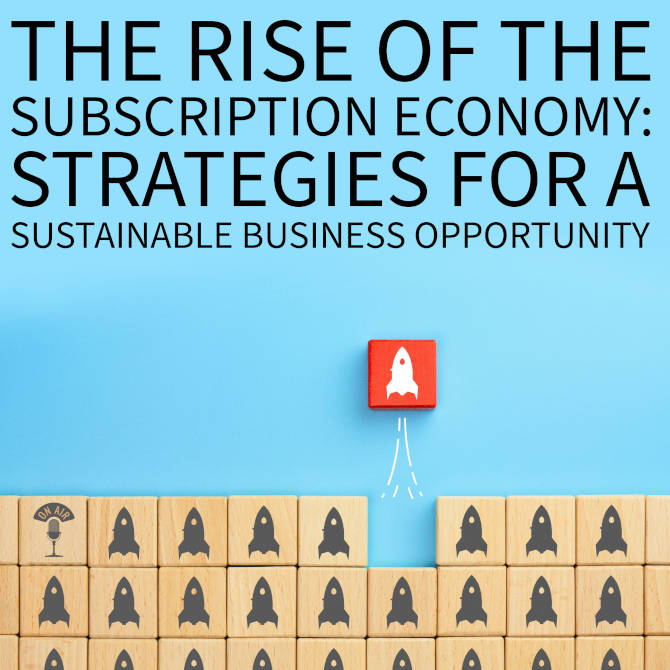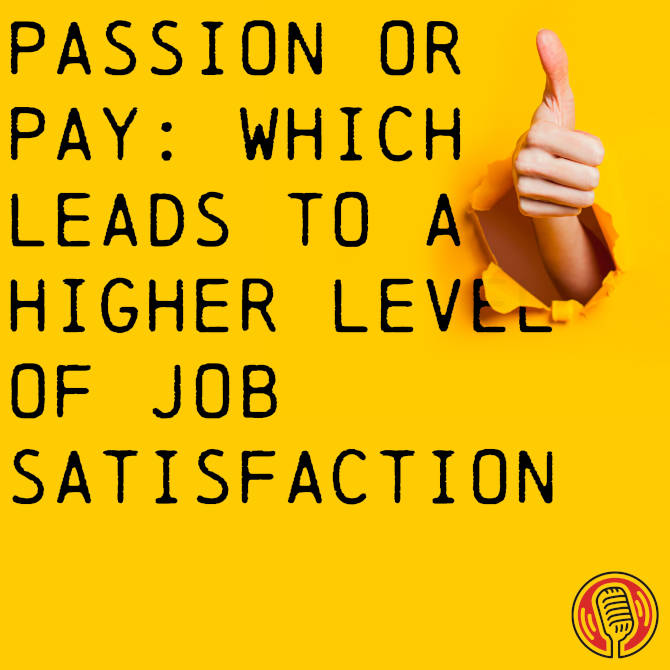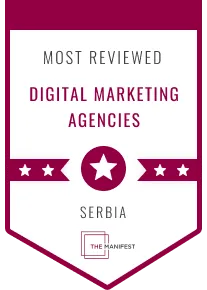Introduction to the Podcast Episode
Mark: Welcome to another exciting episode of our podcast. Today we’re going to delve into the fascinating world of TikTok, the popular social media platform that has taken over the world by storm. From its rise to fame, to its controversial status among the government, and its important impact on mental health and education.
We’ll be covering a wide range of topics in today’s discussion. As you may have noticed, I said. We’ll be covering this because I’m absolutely thrilled to introduce you to my new co host Jana.
Jana: Hi everyone. It’s a pleasure to be here.
Mark: She’s a communications talent who’s recently joined my team. Now
Jana’s gonna bring with her a different point of view to mine.
We could say it’s like a Gen X vs Gen Z battle. Hopefully without the battle. And with her enthusiasm and fresh insights, this’ll no doubt enrich the conversation or debate today. So let’s sit back and join Jana and me as we expose the ins and outs of TikTok. It’s influence on today’s society. And the ongoing debate surrounding this captivating platform, so stay tuned.
Let’s dive in. Shall we start?
So Jana, tell us a little bit about TikTok and what’s made it so popular amongst users.
The Rise and Popularity of TikTok
Jana: So TikTok actually became very popular when it merged with the previous application, which was called Musical. ly. And that’s actually when I started looking at what TikTok produced because I like to record videos where you would dance and sing and follow different music that is trending at that moment.
So that’s the biggest point about TikTok. It allows you to follow the trends and to produce videos that are interesting to you and to watch people create videos that are fun, entertaining, but also educational.
The Shift of TikTok’s Demographics and Business Uptake
Mark: So, you know, that was in, it started in 2016, if I remember rightly. And it was very much popular with your generation, not so much with my generation.
Now I noted that obviously when lockdown COVID restrictions and all of that happened, that it became more and more popular. And the short forms turned from 15 to, I think it was 30 seconds or something. And now it goes up to 10 minutes, which is quite a different standing. So you talk about the entertainment side for yourself, but there’s lots of other sorts of businesses utilising it.
And do you think there’s much of an uptake on businesses on that?
Jana: I think that it’s starting to get larger, the amount of businesses that are using and, uh, diverting towards TikTok to recommend their products and to market their businesses.
Exploring TikTok’s Controversy and Government Scrutiny
Mark: So, okay. That’s a good aspect to look at. Now, if we were to say it’s businesses, so you’re a user of TikTok, you use it, you already said that.
And would you, do you see these businesses there? Is it appealing to you?
Jana: I do see them. I didn’t see them as much before, but as the current CEO of TikTok Shou Zi Chew said, the demographics of the users of TikTok are leaning more towards 35.
So that is The age where entrepreneurs are actually starting to create their business and realise the importance of introducing their products towards youth groups and that the most appealing way isn’t Facebook, but that people are using TikTok nowadays where they can actually watch content in short forms so that the message gets through to them, but it doesn’t take too much of their time.
Mark: So, okay. So you’ve given a demographic here of the younger generation to their thirties. There’s actually a humongous Gen X community on there and they’re also utilising the platform to sell their products. And there’s lots of charities there. There’s some beautiful videos, how people have started their businesses throughout the whole world.
So there’s great advantages, wouldn’t you say to TikTok?
Jana: Definitely. But I feel as though those generations are not getting promoted as much as they should be because that type of specific content, I can only find if I search for it. So it doesn’t show up on my for you page, such as more entertaining videos would.
So if it’s something that I’m actually interested in, then I’m going to have to look for it. That’s when the algorithm is gonna put it on my For You page.
Mark: Yes. No, indeed. But there’s also the aspect of timings, as we mentioned earlier, the timings. Um, it’s interesting. My son cannot watch anything over 20 seconds.
Whereas if I go on to TikTok, mine is 10 minutes, that’s it. And he never understands. He’s never seen a 10 minute one and I’ll send him a video and he’s like, Where are you getting 10 minute videos from? I don’t see those.
Whilst my daughter, I think initially because she’s quite heavily into looking at the makeup and dancing and all of that, they’re actually slightly longer.
So she gets the longer videos and she’s also interested in the political side and all of that. But going back to the businesses, now there’s all this buzz about TikTok in the US administration. And their concerns and all of that. Where do you see that going?.
Jana: To be honest, I watched the entire hearing that was five and a half hours long, and it was actually very interesting to see how most of the people on the committee we’re asking repetitive questions, but their main struggle and their main issue with TikTok is that they are concerned about the privacy.
TikTok’s Privacy Policies Compared to Other Platforms
Mark: So, okay. If we touch upon the privacy aspect, what’s the difference between say, Google, Meta. Twitter, and Tiktok’s privacy.
Jana: Well, that’s exactly the point that the CEO of TikTok is trying to make.
He’s saying that even though they are using some of the data in the sense to create the algorithm in the way that the videos that you get to see are appealing to you, they’re not using anything more than that.
So the only data that’s being gathered is the data that all of the platforms are using. So in my opinion, if they were to put a stop and ban TikTok, they would also have to do that with other social media platforms.
Mark: I see. So I think Shou Zi Chew Yeah, I think he did a very good job. He presented TikTok extremely well, but he’s not a Chinese national.
He’s a Singaporean national. Do you think that’s had any bent on the subject?
Jana: I’m not entirely sure because he did say that his education was quite diverse in the meaning of where he graduated. He was studying in, I believe, the UK and also he had part of his degree done in the US. So, I think that also gives him the viewpoint where he can say from those different aspects because of his cultural diversity and knowledge that he has. So I don’t think that that should impact as much as probably someone who’s more domestic would have. Like, I think that he knows what he’s trying to say and how to reach the point towards the U. S. committee.
Mark: So, you know, we think about the U. S. committee. And their reasoning behind this of potential misuse of users, information data and you came back with a very good answer about Google matter and Twitter. I don’t even think Elon would say it as well as you did. Now, if I was to turn around to you and say to you, you know, you own shares in an e-commerce agency and a buddy comes up to you and says, Oh, can you recommend an e-commerce agency?
And you have a choice of recommending the one you have shareholders holdings in or a different e-commerce agency. One that may not be, so the one you have shares in may not be as suitable as the other one, but which one would you recommend?
Jana: Well, of course you’re going to recommend the one that works better for you.
Mark: Indeed. So would that be classified as insider trading because you’re to gain from them utilising that specific.
Jana: I think that it definitely would.
Mark: So if we look at the likes of social media and Facebook and how many of the Congress actually own shares in those businesses, so is there a base of them?
Google, Meta, Twitter, there’s an open ending, maybe not so much Twitter, but it’s an open-ended question where are they actually doing this to gain more money shares within Google and Meta?
Jana: Yeah, I believe that’s actually a good point to make because I believe that there’s a serious conflict of interest because if they are a part of those shares and if they do have something, then, of course, they’re going to recommend that to people that want to use or get involved in the platforms.
So I believe that it would be a difficult point to start at where they’re trying to ban one product, but at the same time recommend and offer another one where they have their own potential gains.
Mark: So we noticed that actually Congress invests over five different sectors.
So I feel that maybe there should be some form of regulation that comes in through the investment process on, you know, what they’re actually regulating because you can’t regulate companies when you have shares in those companies.
That doesn’t actually work on that basis. But we noticed that, you know, if we go further afield, you know, we can see that the U. S., as well as India, are really delving into TikTok. What’s this scrutiny really about?
Jana: If I’m going to be honest, I believe that it’s about their fear of losing control, especially for the United States, because they want the data of their residents to be taken care of and they want it to be put like under uS charge and for them to have all of the data in a place where it’s secure and they feel safe. But the problem with that is that their data already is stored on US ground. And I believe that if they want for the data to be all transferred toward them, it would be more of like political say, where they have more of the power.
So, I believe it’s mostly that, and as for India, I believe that it was an issue about sovereignty, because they felt the same thing, that they were lacking the control around the platform, and it wasn’t beneficial for them to, for China to have all of the data.
Mark: So, that’s, that’s interesting, because you mentioned, I think it was twice in there, control, control, control.
Which comes back to the misinformation aspects. Now, with misinformation going out there and do you think the unique sort of, TikTok’s unique sort of algorithm played in the role of sending out misinformation?
Jana: I believe so, but I believe that it depends on what type of information we’re looking at. So if it’s something not as important, such as different trends that are ongoing.
And different solutions or remedies to certain issues. I think that’s something that the algorithm just doesn’t recognise as an issue. But when it comes to psychological warfare, or, for example, them trying to present one specific view to the audience. I do believe that they have an issue with sorting out the regulations around that and which platforms should be promoted more and which content should be made available.
But at the same time, I believe that there is an opportunity and space for all users to just say what’s on their mind and to see relevant content based on what their desires are. So I think that they do have good regulations, but that it’s not covering all aspects as it should be. But I don’t believe that it’s just forwarding, for example, like one specific viewpoint, which would work towards the Communist Party of China.
The Role of TikTok in Misinformation and Political Influence
Mark: But what didn’t we find that, you know, with the likes of Google, YouTube, Twitter, and Facebook, they were working very closely with the FBI. And the FBI was stating what should be shown and what shouldn’t be shown.
There’s an element of breaking free speech here. So is it really about, because I remember being on TikTok and videos being banned instantly when people talked about things banned, they didn’t feel as if there was anything slipping through.
However, you know, if, if we look at say today. And we do a search, say on YouTube, about what’s happening in Paris at the moment. There’s very little out there being explained. There’s all these riots happening. But if I go on to the likes of TikTok, I can actually see all this information that’s happening.
So is there a balance that should be reached here or is, should they be put in a governing body and in between the government’s thoughts and misinformation?
Jana: They said that they have around 40, 000 employees who work specifically on the algorithm. I feel as though the algorithm doesn’t work fast enough to regulate all of the videos and to see what content should be forwarded and which should be banned.
So I think that YouTube is probably doing too good of a job where it’s not allowing you to see anything besides the things that probably those who are involved and investing in the company, they support the views that are being shown. I think that that’s something that should be worked on.
So there should be a proper balance between what’s right to see. And what should be showcased and forwarded, especially because they do have a young crowd that are using the application every single day.
The Role of TikTok in Misinformation and Political Influence
Mark: So that’s, that’s an interesting, yeah, that’s very interesting what you said there. So if we then move on to, you know, is there any way that this could be integrated into educational incentives or initiatives?
Jana: Honestly, I believe so. Because of the point that you stated earlier, where your daughter likes to watch different videos based on makeup and dancing and all of that. I think that there is a way where you can add video and content.
For example, my friend, she always sends me videos that are quite educational and then we have different discussions and debates on whether we support that topic or not. So I think that it could be used for educational purposes, especially if teachers give different challenges to their students. For example, there was one teacher who said, if you’re able to create, he’s a marketing teacher. And he said, if you’re able to create a viral video, I’ll cancel the exam, the final exam. And one girl was actually able to do that and there were mixed feelings about whether he was supposed to actually cancel the final exam or not. And I believe that he did have a good point where he showed his students in a new, more interactive way how they can do something for themselves.
How they can help themselves, how they can grow a platform, if they only give it a chance and if they see the importance of following new technology.
Because she was actually the only girl from her class who even tried to create the viral ready video and she saved the entire generation of the final exam.
Mark: So now they know nothing.
Jana: Not necessarily.
Pros and Cons of TikTok’s Content and Community Impact
Mark: So you actually said that I found, you know, all of that’s absolutely fascinating, but you mentioned your friend and it’s, she utilises it as almost a conversational debating aspect or to start conversation with yourself, or is it a group of you that look at the TikTok?
Jana: It usually depends on the topic. It’s mostly between the two of us. And then if we find it interesting enough or controversial enough, we share it within our group, where we have both male and female opinions on the topic. So it becomes more interesting, but at the beginning we actually have to see whether it’s worthy of sharing it with the guys of our group, or if they’re just going to completely neglect it.
Mark: So it’s, I’m trying to get this together in my head. So she sits there in front of her phone and she says her conversational point. Or whatever it is, she’s not going to be dancing the conversational point, is she? And then she sends it to yourself, and then you both decide whether it’s worthy of the wider group.
Jana: It really depends on my opinion of the topic when we begin the discussion. So if it’s very contrasting to what she’s saying, that’s when we decide to share it to see if a broader group of people think one certain way, or if it depends. So. It’s usually more of like, kind of a debate, in ways, to see where the topic can go, and from that point we actually find multiple different videos with different viewpoints on how people are feeling.
So, it really depends on the type of video, but in most cases, if it’s something educational, Then we just share our opinions, but if it’s something that can actually be brought into debate and discussed to more detail, that’s when we share it with the guys and see what’s going on, what’s differing our topic.
Mark: So when you’re, when I’m just trying to, so your friend will share and do you guys do duets with your own opinions or does it go offline?
Jana: She does duets sometimes, but it’s usually offline when we do it together. So our discussions, it’s just within our group, but then she usually likes to post TikToks with her opinion.
Mark: And how would you, how would you feel if the government bans… or should they be allowed to ban the likes of TikTok or any form of social media?
Jana: Honestly, I’m not sure how that would work in today’s society because there would be a lot of criticism and that wouldn’t go well with the government because a lot of their people would be unsatisfied with the decision that was made.
So when they say that it’s banned at university or in government offices. I think that’s a place where it shouldn’t even be available, especially in government offices. I feel as though they don’t have a reason as to why they should be on the platform at all.
Mark: Not at all, yes.
Jana: Exactly. But when it comes to like the wider public and if they’re, they should be allowed to watch the media, I think that it’s a very personal thing.
And if they ban one platform, they should definitely at least completely regulate the other ones. So there should be a balance. You’re not allowed to, in my opinion, block one platform and promote others that are similar in content, honestly, if you really go into them and search different topics.
Mark: Yeah. So, it’s, and I think in a way, TikTok has become almost a support mechanism for a lot of people.
Jana: It definitely has. Yeah.
Mark: And there’s, you know, there’s good sides to TikTok and there’s bad sides to TikTok, whether it’s misinformation and some of the other more diverse sorts of content.
Jana: Exactly. As is the fact with every other social media platform.
Mark: Exactly. So if we sort of look at that aspect and think, if we’re going to take it away from people, is there a sort of well-being that’s going to be lost in that process? Are we ignoring a lot of people or is TikTok actually being bad on a wellness state sort of standing?
Jana: It really depends on the way that we look at it.
So if it is, if we’re looking at it from the perspective of people spending six hours per day, just scrolling through their phones and watching different videos, then it could definitely be bad because you fall into this loop of different videos, which promote ideas that don’t go with your ideology at all.
And it can be an issue because you start overthinking all of the issues that arise. But at the same time, whenever I feel down, my friends, the same friend, she sends me different TikTok, sometimes about feeling good in your body, or just people saying, Hey, I can see you struggling. Let’s work on this, this, this.
So I think that there can be a balance between it. It’s just how you use the app on your own. And I think that that’s something that you can’t regulate. It just depends on what kind of person you are and what kind of content you’re searching for. So if you want to create it and turn it into something that’s beneficial to you, I think that you definitely do have the space.
Mark: Brilliant, absolutely brilliant answer. Um, what would you say the difference, you know, were you using Snapchat in a similar fashion?
Jana: No, Snapchat for me was just an app where we would share different, uh, photographs of what we’re doing in the current moment, which is something that I deleted very quickly because I don’t want to know what people are doing every second of the day, if they’re eating soup or watching TV.
So I think there on Snapchat, I didn’t have the educational aspect of it, so if I wanted to watch what people are doing, I’ll just scroll through their Instagram stories at some point of the day. So, I do know that there is a feed where you can see interesting Snapchat videos, of course, but it just wasn’t as appealing to me as TikTok can be sometimes.
But at the same time, I don’t use TikTok on a daily basis. So, I use it only when I feel as though I need to let my mind just ease off and… Just stop thinking about everything and go watch videos that are entertaining or interesting or fascinating to me or where I can learn something new. So, that’s really how I use it.
Final Thoughts and Future of TikTok
Mark: So, apart from your creation of TikToks, you talk about the educational side. Now, where does YouTube fit in? Why aren’t you using YouTube in the same fashion?
Jana: For YouTube, I think that it is a good way to get information. I know a lot of people who use YouTube tutorials or such. I use them when I’m studying for my exams, for example.
So I do believe that it’s a very good site, but it doesn’t provide me with the fast content that I maybe would need, such as TikTok, because on TikTok I can go and I can search for a specific term or theory or something that I’m looking into, and it provides me with multiple short videos. And then when I gain the overall idea that I need from the short video, that’s when I would probably either research and read something more about the topic.
I would watch different videos for different perspectives, which YouTube does offer, but they’re longer videos. So I would actually need to dedicate more time, whereas I actually need a short answer to be able to start diving into the topic.
Mark: I see. So it’s the multitude of a subject, short answers on a multitude that gives you the overview.
Jana: Yeah, exactly.
Mark: And then you’ll move on to either researching it on blog posts or articles and all of that base, which is a really good way of looking at it. And I’ve never thought of it on that specific basis. And actually, that’s quite similar. I saw a video on TikTok about Harris Bennett.
He was a… A psycho, basically, and Piers Morgan was interviewing him. And, very interesting character, and I thought, well, I want to know more about this character, so I had a few looks, and then finally went on to YouTube to watch the whole documentary, and which was actually quite disappointing.
Piers seems to have a tendency to like his own voice.
Conclusion and Inviting Audience Interaction
Well, anyway, thank you. I think it’s very insightful information. I really enjoyed doing this and look forward to us doing loads more.
Jana: Thank you for having me. I can’t wait to do more of these.
Mark: So remember to like, follow and subscribe. And if you have any questions for Jana, feel free to send them in and we look forward to talking to you next time.
Bye bye now.











